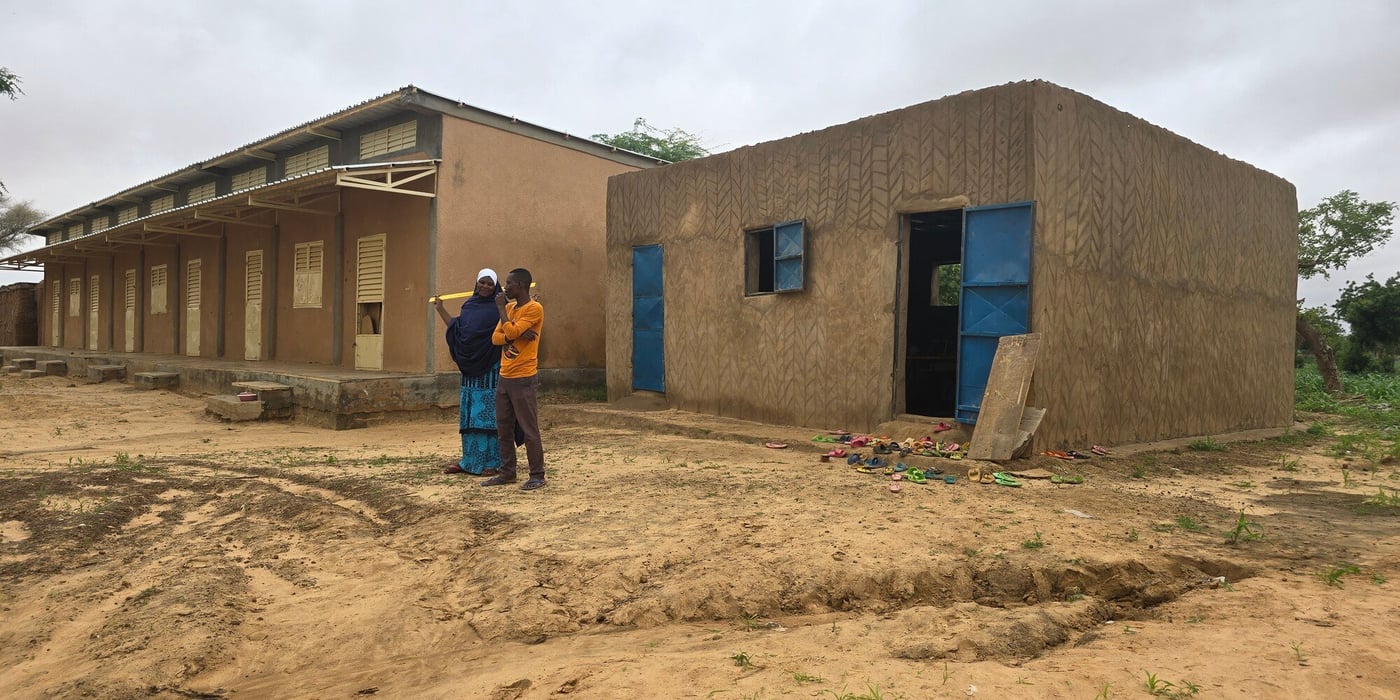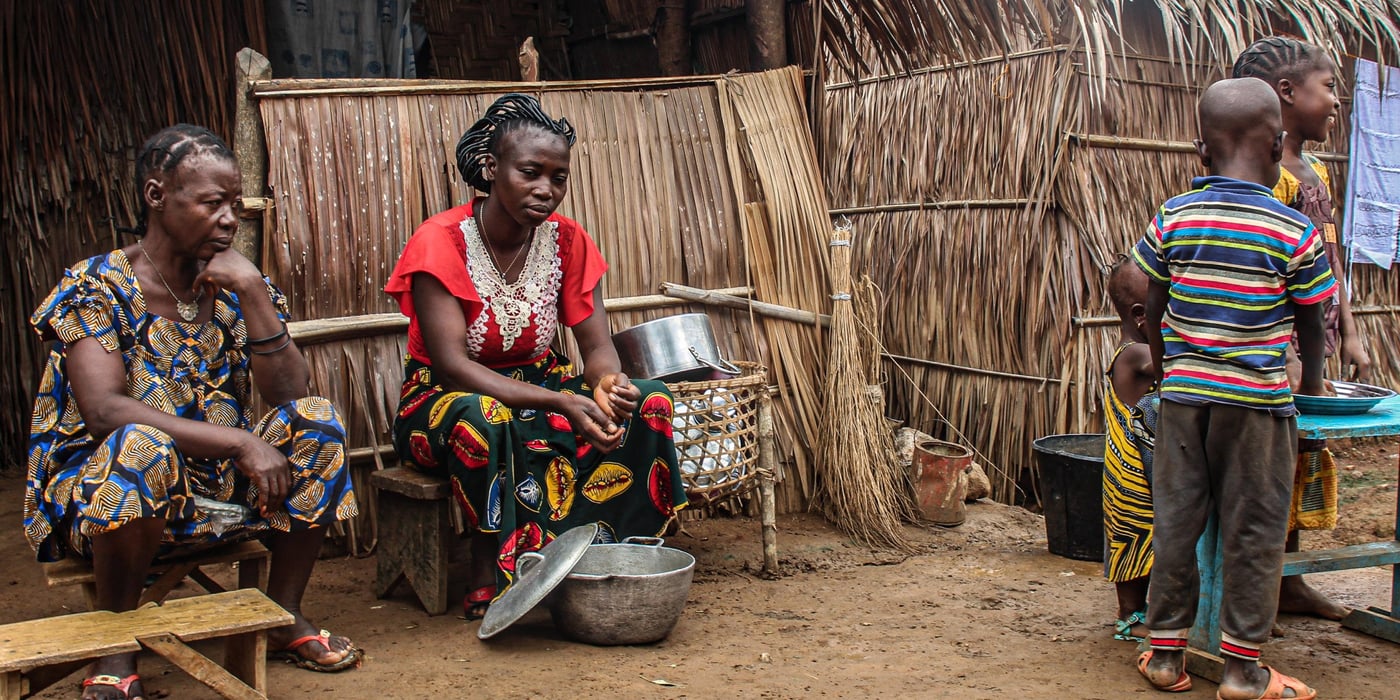
"We asked them to stay," says Philippe. He sits together with his children at the entrance of his house in Berberati, west in the Central African Republic (CAR).
Like him and his family, his house occupants Khaltouma and Mamatsouk had been forced to flee their homes because of violence. Philippe had no conscience to ask them to leave his family’s home. Today, they are 15 people living together in the house.
One in four is displaced
Since late 2012, the Central African Republic has been wracked by a bloody, armed conflict forcing thousands of people to flee their homes. At the end of 2016, the conflict escalated in the east of the country and spread to new areas. As a result, the number of internally displaced people increased by 70 per cent last year – reaching 689,000. At the same time, some people have been able to return to more stable parts of the country.
Still, 1.2 million people are now either internally displaced or have sought refuge in neighbouring countries. This means that one-in-four Central Africans is displaced.

Returning to occupied homes
Refugees and internally displaced people who fled violence in western Central African Republic several years ago are slowly returning home. Many have been displaced for a long time and find their homes occupied by other people in their absence.
Through dialogue and mediation, the Norwegian Refugee Council (NRC) assists returnees regaining access to their homes when returning after years of displacement. We also search for solutions for occupants who accept to vacate the homes. Sometimes, the owner will allow the occupants to stay, as Philippe and his family did.

Khaltouma had to flee in 2014, when her village was attacked. She took refuge in Philippe’s house, where Philippe and his family now let her stay together with them.
She has nowhere else to go and has not heard from her children for the past four years.

Found shelter in an unoccupied home
Although some people have been able to return to more stable parts of the country, violence is currently spreading to new parts of the Central African Republic. The number of displaced people is back at the same level as it was during the height of the crisis in 2013-2014.
Destin, 41, and his family fled an attack against their home village, in western Central African Republic in 2014. "We fled and hid in the bush. We lived like animals for two years," he says. "I don’t meddle into politics, I don’t carry weapons, I don’t know how to fight, so why did this happen to us?"
After two years, fighting calmed and Destin and his family found a home that was unoccupied. "I just wanted to find a safe refuge for my family until we could go somewhere else. I cleaned the house, put doors and windows on it."
They lived there for two years until the owner showed up. The owner had fled too and wanted to return. Destin promised them that they would leave.
Shortly after, Destin volunteered to help clear a site nearby for construction work and he was allowed to build his own home on the site. "After several years of living in fear, we’re finally well," he says.




